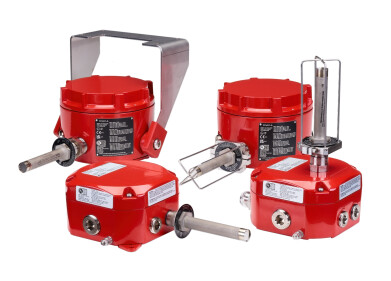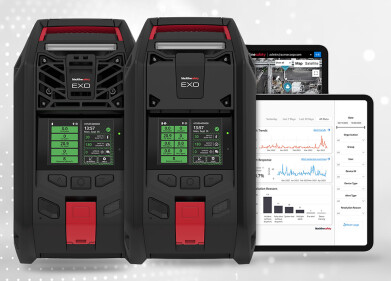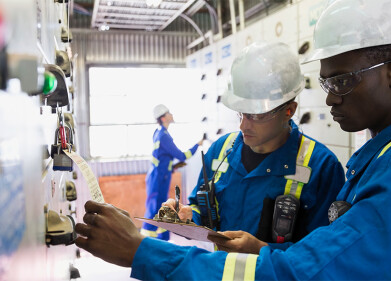Safety
The key to contactless access control for explosive environments
Dec 13 2019
Access control within explosive environments must meet the requirements of health & safety regulator ATEX. The dangers of "explosive atmospheres" have led to strict regulations, requiring the use of fully licensed equipment in high-risk areas.
LOCKEN's electronic access control incorporates a new contactless technology patented by its parent company, ISEO, which allows it to meet the new standards for operating within explosive environments. The main areas concerned are the energy sector, notably gas and hydrocarbons, chemicals, timber and household waste.
An explosive atmosphere is formed mainly due to the presence of flammable gases or dust. The explosion can be triggered by a spark, mechanical or electrical, or by a local source, for example due to the friction of two pieces of metal.
In the case of electronic access control, the danger comes less from the mechanical part of the key than from its electronic component. If the transmission of information between the key and the cylinder is carried out through an electric contact, an electric arc can form and thus a spark that will be enough to ignite the surrounding explosive materials.
By incorporating an inductive technology key into its solution, LOCKEN is the first to bring a complete access control solution designed for explosive environments.
The new key transmits the information to the cylinder through an electromagnetic induction coil located at the heart of the key. As a result, an electric current does not pass between the key and the cylinder: no electric arc, and therefore no spark, can form.
This state-of-the-art technology has enabled LOCKEN to obtain ATEX certification for its access control solution.
Approved to ATEX II 2 G Ex ib IIB T4, the solution is suitable for gas delivery and regulation stations, specific hydrocarbon processing and distribution infrastructures and chemical factory enclosures. It is also suitable for areas where an explosive mixture of gas, vapour or mist may "occasionally" occur in "normal operation".
The intrinsic characteristics of the key (label ib of "intrinsic safety"), and its maximum operating temperature (T4), allow it to be used safely in the presence of a gas as highly explosive as ethylene, as well as slightly less dangerous gases such as propane (II B).
In addition to adapting to all environments, this revolutionary technology allows an almost instantaneous opening, since the exchange of information between the key and the cylinder occurs in less than 80 milliseconds. Moreover, as communication between the key and the cylinder is non-contact, it is not disturbed by potential damage, such as oxidation, wear or dust present in the cylinder. It offers unrivalled robustness.
Thanks to its Bluetooth module, the electronic key can communicate with the user's smartphone via the MyLocken app, enabling control and management of access on a case-by-case basis and in real time, an additional guarantee of security, which is usually reserved for online access control.
Led by LOCKEN smart Access management software, the solution provides enhanced access management and perfect traceability.
Catherine Laug, Marketing Director of LOCKEN explains: “Meeting ATEX legislation guarantees that our latest access control innovation, the new contactless key, is safe to use at potentially hazardous sites, enabling us to provide the most robust and future-proof solution to our customers.
“Several large-scale organisations in the chemicals industries have already opted for the LOCKEN smart key solution and we are looking forward to working with many more in the future.”
Digital Edition
PIN 25.5 Oct/Nov 2024
November 2024
Analytical Instrumentation - Picturing Viscosity – How Can a Viscometer or a Rheometer Benefit You? - Sustainable Grease Formulations: Evaluating Key Performance Parameters and Testing Method...
View all digital editions
Events
Nov 26 2024 Paris, France
Nov 26 2024 Amsterdam, Netherlands
Nov 27 2024 Istanbul, Turkey
Biogas Convention & Trade Fair 2024
Nov 27 2024 Hanover, Germany
Dec 03 2024 Dusseldorf, Germany





















